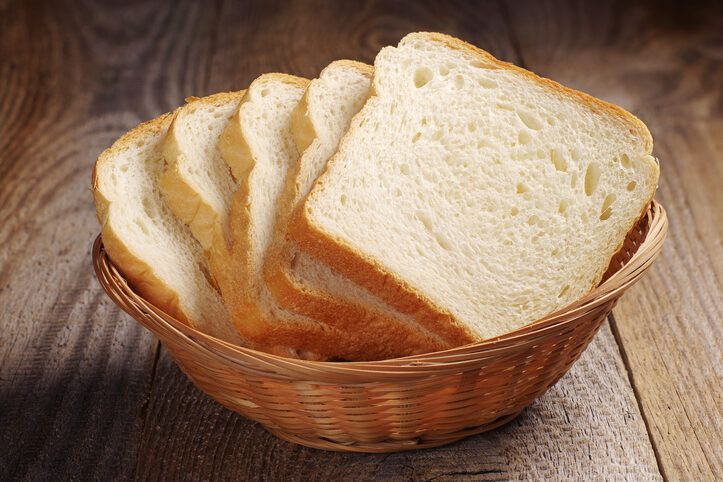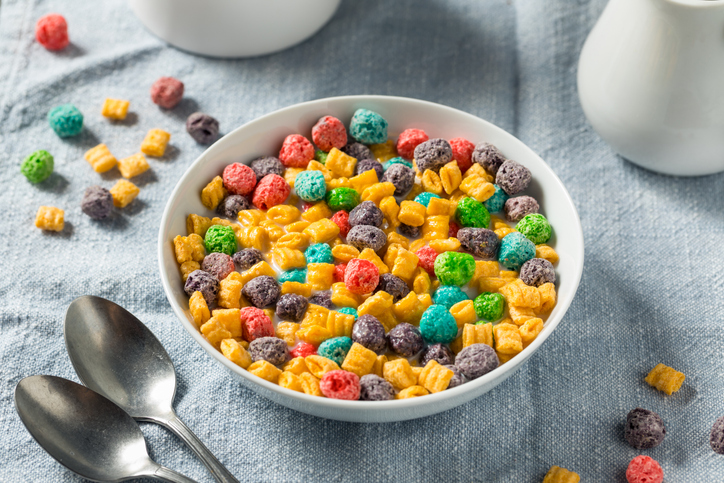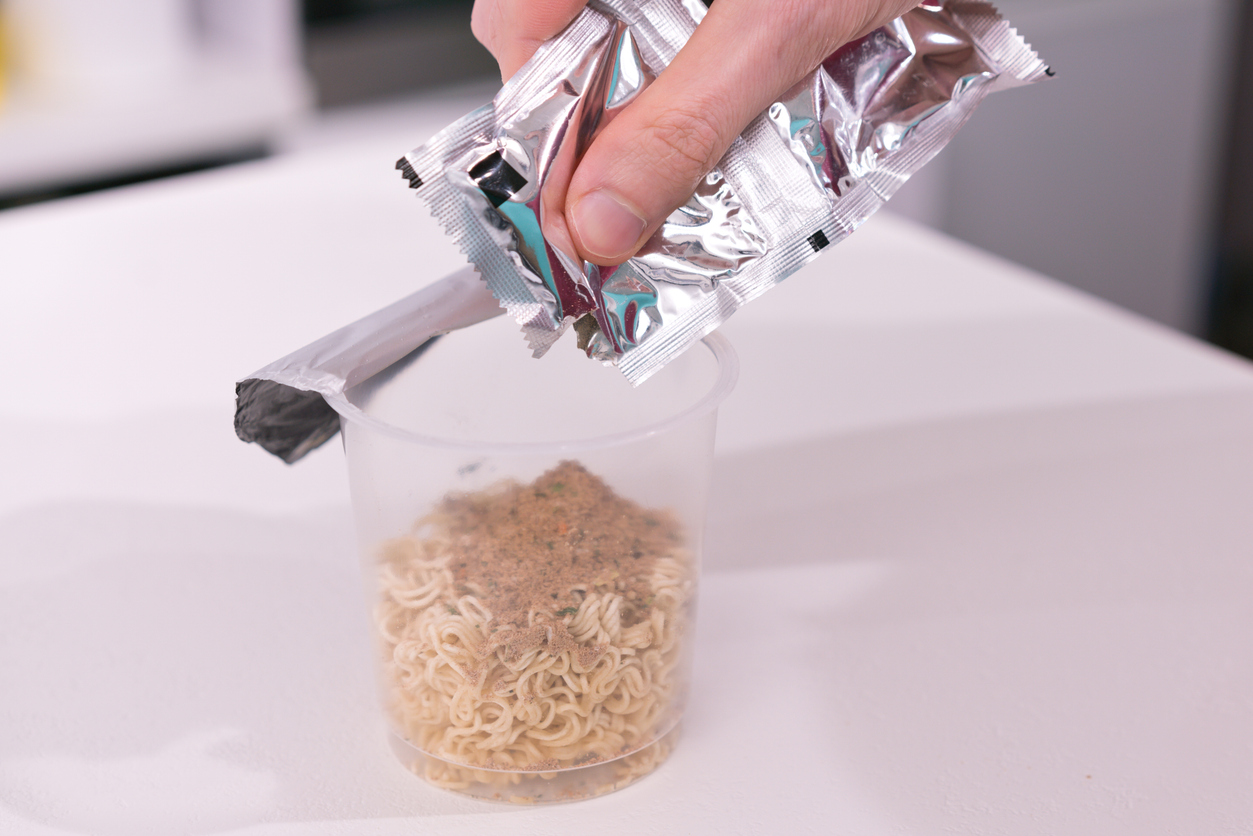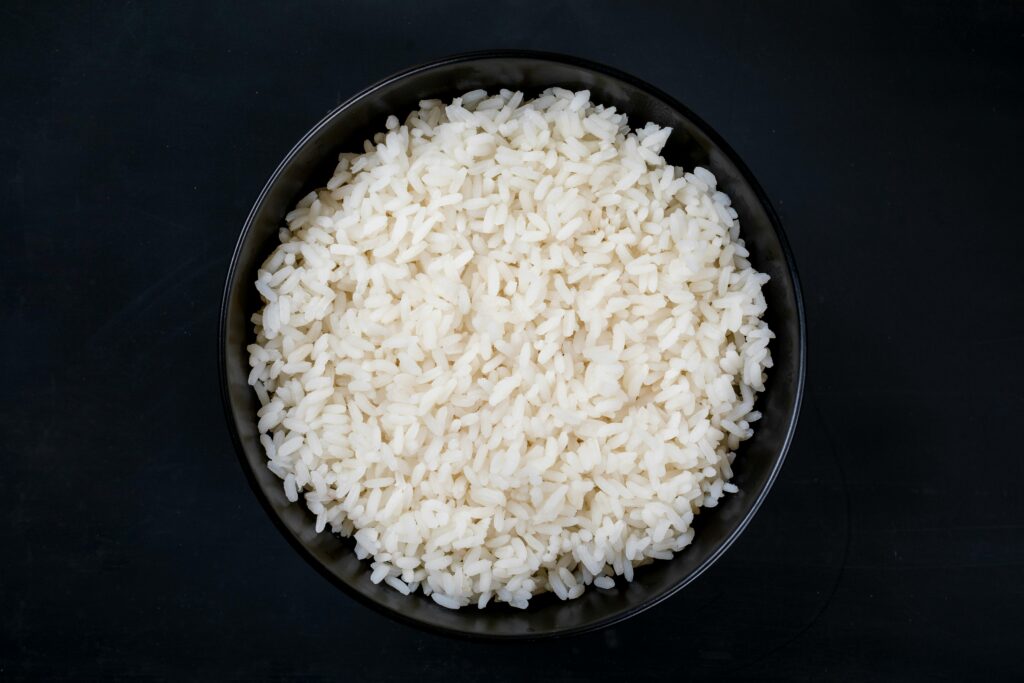1. White Bread

White bread feels familiar and comforting and that is why it is an easy place to begin. Its soft texture makes it a daily habit for many people, but refined flour breaks down quickly and spikes blood sugar faster than most expect. That sudden rise can leave you tired, hungry and reaching for more food shortly after eating. Over time, repeated spikes may affect weight, cravings and energy. Switching to whole grain options or pairing white bread with protein, healthy fats and vegetables can help your body process it more slowly. Little adjustments like this can quietly support better daily wellbeing.
2. Frozen Meals

Frozen meals save time on busy days and they feel like an easy solution when you are tired or rushing. However, many of them contain large amounts of sodium, preservatives and saturated fats that are not obvious at first glance. Eating them frequently may affect heart health and leave you feeling less energized than fresh meals would. Adding vegetables or lean protein can improve their nutrition if you still need convenience. Preparing simple batches of fresh meals ahead of time also helps you avoid relying on frozen options too often. Small planning steps can make everyday eating more balanced.
3. Sugary Breakfast Cereals

Sugary breakfast cereals often seem harmless because they are colorful, fun and marketed as fortified. Yet many of them contain a surprising amount of added sugar and refined grains that digest too quickly. This can give you a burst of energy followed by a sudden crash that disrupts your morning and leaves you craving more sweetness. Switching to whole grain cereals or oatmeal with fruit and nuts provides lasting energy and better nutrition. With a small shift in your routine, breakfast can become a steadier start to your day and help you feel satisfied longer, improving your mood and focus.
4. Diet Sodas

Diet sodas appear to be a healthier choice because they contain no sugar, but artificial sweeteners may still affect your metabolism in unexpected ways. Some people experience increased cravings after drinking them, and the acidity can wear down tooth enamel over time. Replacing them with sparkling water, infused water or herbal teas can give you a refreshing drink without the hidden drawbacks. Change does not have to happen all at once. Gradually reducing how often you drink diet sodas can help your body adjust and may improve how you feel throughout the day as your habits become healthier.
5. Potato Chips

Potato chips are crunchy, salty and comforting and that combination makes them easy to overeat. They are high in sodium and unhealthy fats, offering little nutrition and often leaving you hungrier soon after snacking. Regular consumption may contribute to weight gain and blood pressure issues without you realizing it. Healthier options like air popped popcorn, roasted chickpeas or baked vegetable chips provide similar satisfaction with fewer risks. Choosing these alternatives does not mean giving up your favorite flavors. It simply means enjoying snacks that support your body better while still giving you the crunch and taste you naturally enjoy.
6. Flavored Yogurt

Flavored yogurt looks healthy because yogurt itself is nutritious, but many versions contain added sugar that turns it into a dessert-like treat. That extra sweetness can cause energy spikes followed by dips and may overshadow the natural benefits of probiotics and protein. Choosing plain yogurt and adding fresh fruit, honey or nuts gives you control over sweetness and keeps the snack wholesome. It is a simple switch that improves nutrition without sacrificing taste. When you take a moment to look past the label, you can enjoy yogurt in a way that benefits your health and still feels delicious and satisfying.
7. Red Meat

Red meat offers protein and iron, but eating it daily may increase long-term health risks including heart problems and inflammation. Lean cuts in moderation can still fit into a balanced diet, especially when paired with vegetables, whole grains and gentle cooking methods. Adding plant-based proteins like beans, lentils or tofu helps diversify meals and reduces overall risk without removing meat entirely. Finding balance makes it easier to enjoy red meat occasionally while supporting your overall health. Small shifts in portion size and frequency can make your meals more nourishing and help you feel better in the long run.
8. Instant Noodles

Instant noodles are quick, affordable and comforting which makes them a popular choice during busy or stressful days. However, they often contain high sodium levels, refined carbs and very little nutritional value. Eating them regularly can affect your health gradually without being noticeable at first. Adding vegetables, eggs or lean protein and using only part of the seasoning packet can turn them into a more balanced meal. These simple adjustments improve flavor and reduce the hidden risks while still giving you the familiar comfort you enjoy. With a few changes, instant noodles can fit into your routine more healthfully.
9. White Rice

White rice is a staple in many homes because it is simple and filling, yet it digests quickly and raises blood sugar faster than whole grain alternatives. Eating it often without balancing it with vegetables, beans or protein may lead to energy swings and increased cravings. Replacing part of your white rice with brown rice, quinoa or other whole grains adds more nutrients and helps you stay fuller longer. You do not need to remove white rice entirely. Small changes in portion and pairing can make familiar meals more nourishing while still keeping the comfort and tradition you enjoy.
10. Seed Oils

Seed oils are common in cooking and packaged foods, but some varieties contain high levels of omega 6 fats that can contribute to inflammation if consumed too frequently. They are easy to overuse because they appear in everyday meals and snacks without much thought. Choosing olive oil or avocado oil more often can help create better balance in your diet. Small swaps like these improve heart health and support long-term wellbeing. Paying attention to the oils you use is a simple step that makes a meaningful difference in how your meals nourish your body and how you feel overall.
This story 10 Everyday Foods That Are Riskier Than You Think was first published on Daily FETCH


